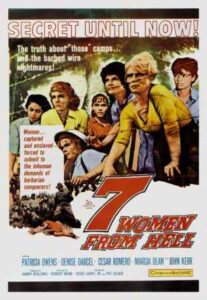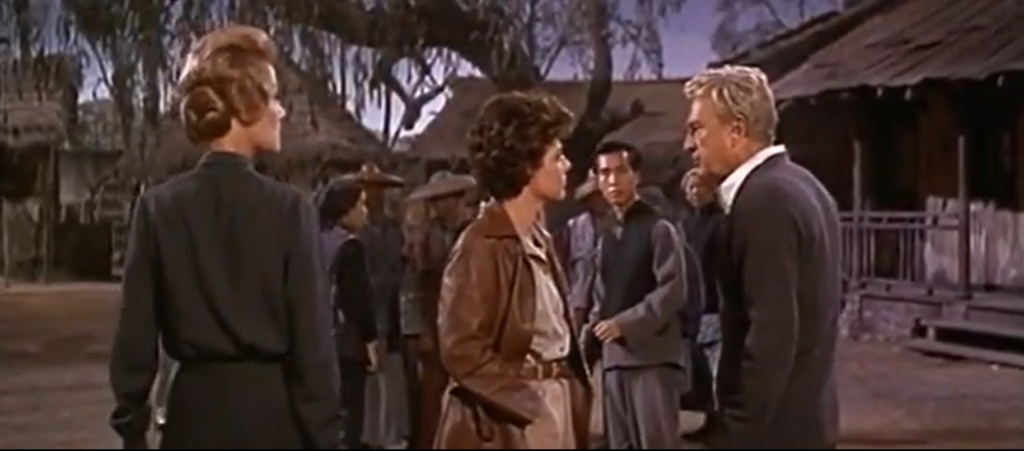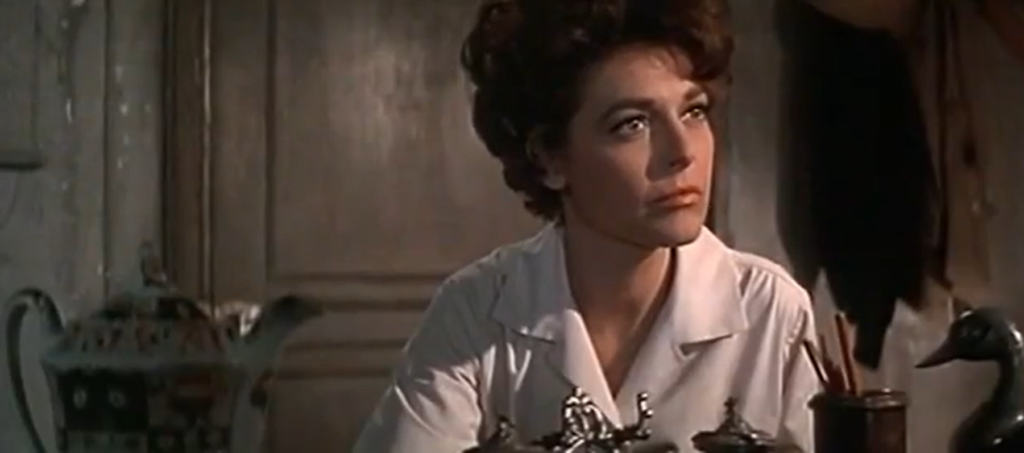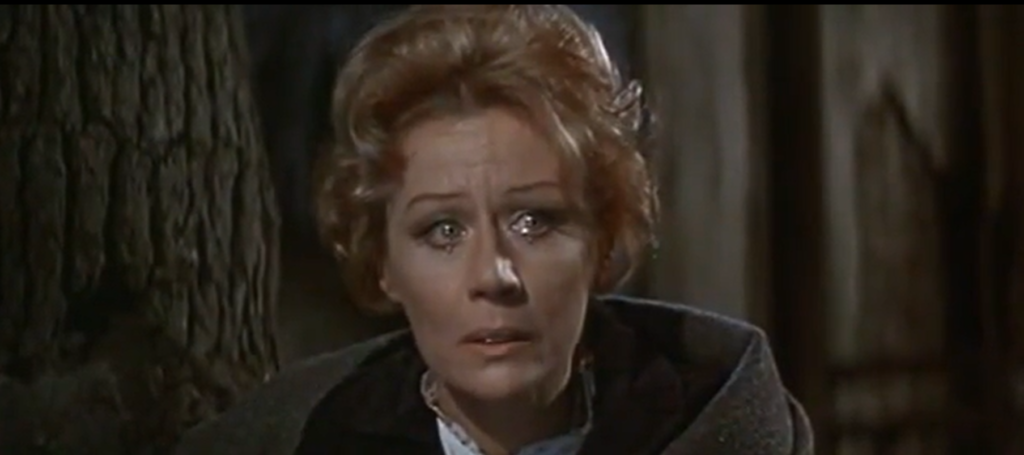|

Synopsis:
A doctor (Anne Bancroft) sent to a mission in China clashes with its puritanical director (Margaret Leighton), but is a source of inspiration for many of the other inhabitants, including an older pregnant woman (Betty Field) and an impressionable young recruit (Sue Lyon). When their mission is invaded by the nefarious Mongol warrior Tunga Khan (Mike Mazurki), Bancroft makes a controversial sacrifice in exchange for the others’ safety, and must bear the brunt of Leighton’s disdain for her decision.
|
|
Genres, Themes, Actors, and Directors:
- Anne Bancroft Films
- Betty Field Films
- China
- Doctors and Nurses
- Eddie Albert Films
- John Ford Films
- Mildred Dunnock Films
- Missionaries<
- Strong Females
- Woody Strode Films
Review:
John Ford’s final film was a box-office failure upon its release, but has since become a critical darling of many (and is enjoyed as a thinly veiled bastion of homoerotic tensions by others). It’s a curious departure from Ford’s normal oeuvre, given that it focuses primarily on women rather than men, and takes place in Northern China rather than in the American West — nonetheless, as many critics have pointed out, it ultimately touches upon several of Ford’s key thematic concerns, including “an isolated group stranded in a hostile environment, civilization versus savagery, and self-sacrifice.” In truth, the women in this film can easily stand in for many of Ford’s archetypal characters: the dynamics between mannish Anne Bancroft and uptight Margaret Leighton are reminiscent of John Wayne and Henry Fonda in Ford’s Fort Apache (1948), for instance.

Indeed, it’s the interplay between these two females — both independent and strong-willed, but with radically different moral takes on the world — which carries the somewhat uneven script, and keeps us interested to see what will happen next. Leighton’s character eventually devolves into campy hysteria when the situation at “her” mission spirals out of control; her repugnance at being forced to stay in the same room as a woman (Betty Field) giving birth borders on laughable. Bancroft, meanwhile, maintains a fiercely realistic and forceful presence throughout; she’s suffered heartbreak and injustice in the past (simply by being a female doctor in the 1930s), but refuses to compromise her passion for helping others through medicine — even if this means sacrificing herself. The ultimate outcome of the film — in which Bancroft utters a now-classic line — will likely come as a touching surprise to most.
Redeeming Qualities and Moments:
- Anne Bancroft as Dr. Cartwright (Peary nominates her for an Alternate Oscar as Best Actress of the Year)

- Margaret Leighton as uptight Agatha Andrews

Must See?
Yes, simply for Bancroft’s stand-out performance, and for its historical importance as Ford’s last film. Listed as a Cult Movie in the back of Peary’s book.
Categories
- Important Director
- Noteworthy Performance(s)
Links:
|




One thought on “Seven Women (1966)”
In complete agreement with the assessment and, yes, ffs should want to see the last of the great Ford’s films. Oddity that it is, and though at times OTT (it’s to Ford’s credit that it’s not more so), it certainly holds more interest than some of the last films of other major directors – say, Howard Hawks, for example. And, yes, knowing something of Ford’s character, the final line does seem a fitting conclusion to his long, illustrious career.
More than anything else, one comes away from the film having fully felt the ennui of the motley mission members doing everything they can to keep from coming unglued in an armpit of the world. In other films dealing with missionaries, there tends to be some example of God obviously working in their lives. As Bancroft states at one point re: her experiences as a nurse, God appears particularly silent here.
The film raises many questions for those who don’t completely fall under its spell: will Mazurki at some point be more believable as a Mongol and less like a mean version of Zorba the Greek?; will Leighton (“I’ve always searched for something that wasn’t there. And God isn’t enough.”) go insane before accepting that she’s a lesbian?; will she run out of expressions for ‘whore’?; speaking of which, will Bancroft run out of cigarettes?
Favorite of many odd moments: Bancroft asks Eddie Albert how it feels to be “the only rooster” among them…and he giggles!